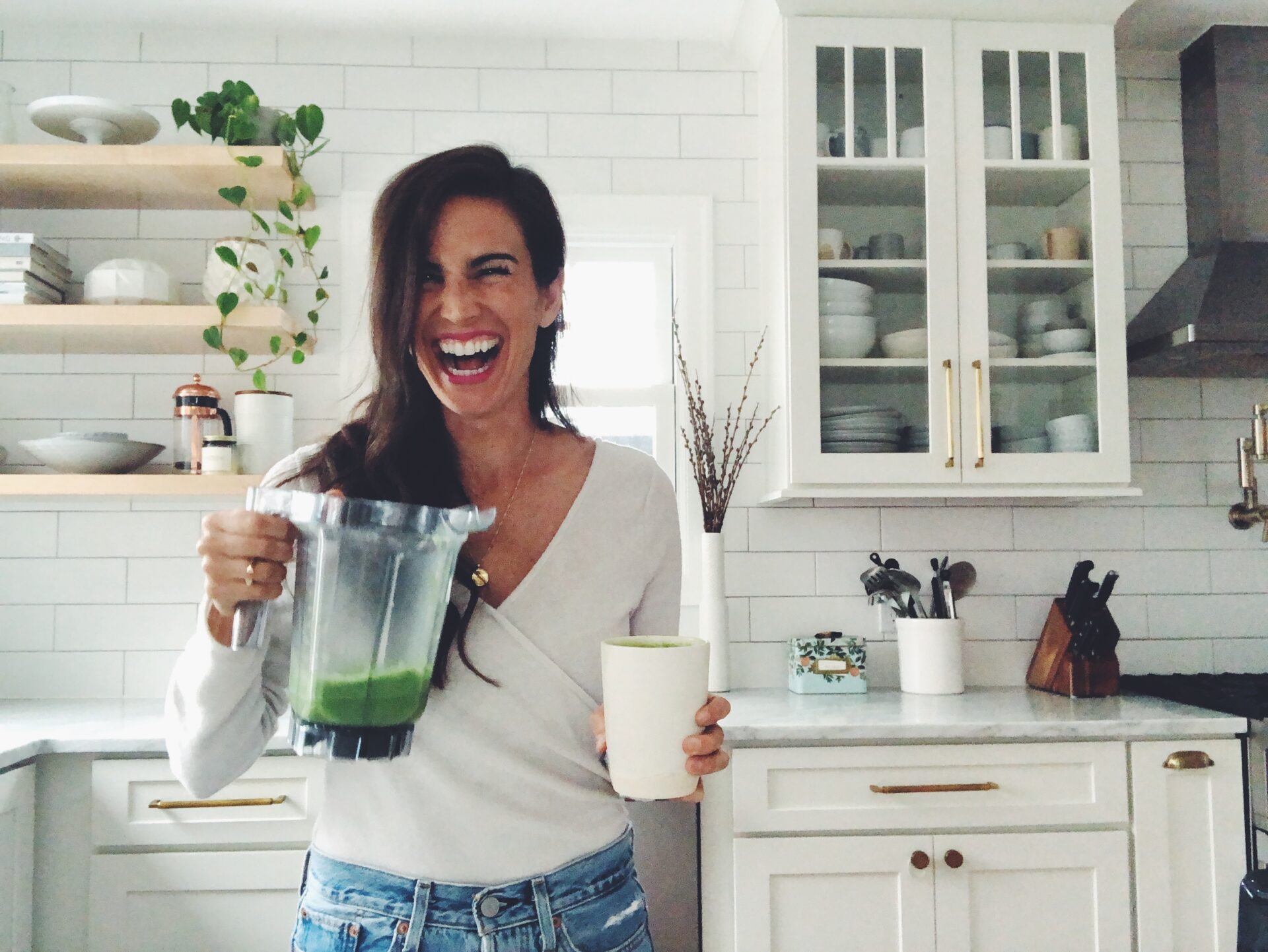
You guys KNOW I am the queen of matcha… if you follow me on instagram, you’ve probably seen me make my morning cup (ok, I totally spread out to two cups lately with more liquid just to prolong the joy) of this magic green potion. It’s one of my favorite rituals of the day and always grounds me for just a few minutes before jumping into a full day of work-from-home mama & business life.
But, matcha hasn’t always been my morning BOC (bevvie of choice). It was always something I liked, but not my daily norm.
TRUTH: I used to try to pretend that I could do coffee like everyone else……ignoring the loud signals my body was giving about it (I’d feel jittery and anxious, didn’t sleep great whenever I had it, and I would get weird squiggly lines in my vision whenever I had it).
So first– like everything I believe and talk about when it comes to food, I tried to just focus on upgrading it to best possible form, before cutting it out completely. Because you all KNOW that I’m a fan of not being extreme with things, unless it’s totally necessary.
But also, the real truth? I felt like I truly needed coffee some days. I was in the first 5 years of starting my business and I was *grinding* hard, pushing, getting up early, working long days, nights, weekends, etc. It was all part of the game, I knew, and I could do it. Plus, I lived right next to one of the best coffee shops in Seattle, the city of coffee, and I couldn’t imagine not having that as part of my work routine on big days.
So first, it meant swapping my espresso shot or americano with oragnic cold brew (it’s the least acidic version of coffee although high in caffeine, so I’d have 1/4 cup of it). The organic part, to avoid the mold and chemicals that most coffee is processed with, and then switching to Foursigmatic’s chaga & mushroom adaptogen coffee (that helped with the jitters for sure, and squiggly lines). Both of those upgrades did help (as well as keeping it to 1 cup a day), and so I would do either of those options a few times a week and did matcha or yerba mate lattes or green tea a few times a week too.
But, even then, if I was being truly honest with myself coffee– even the best kinds of it—still didn’t feel great for my body.
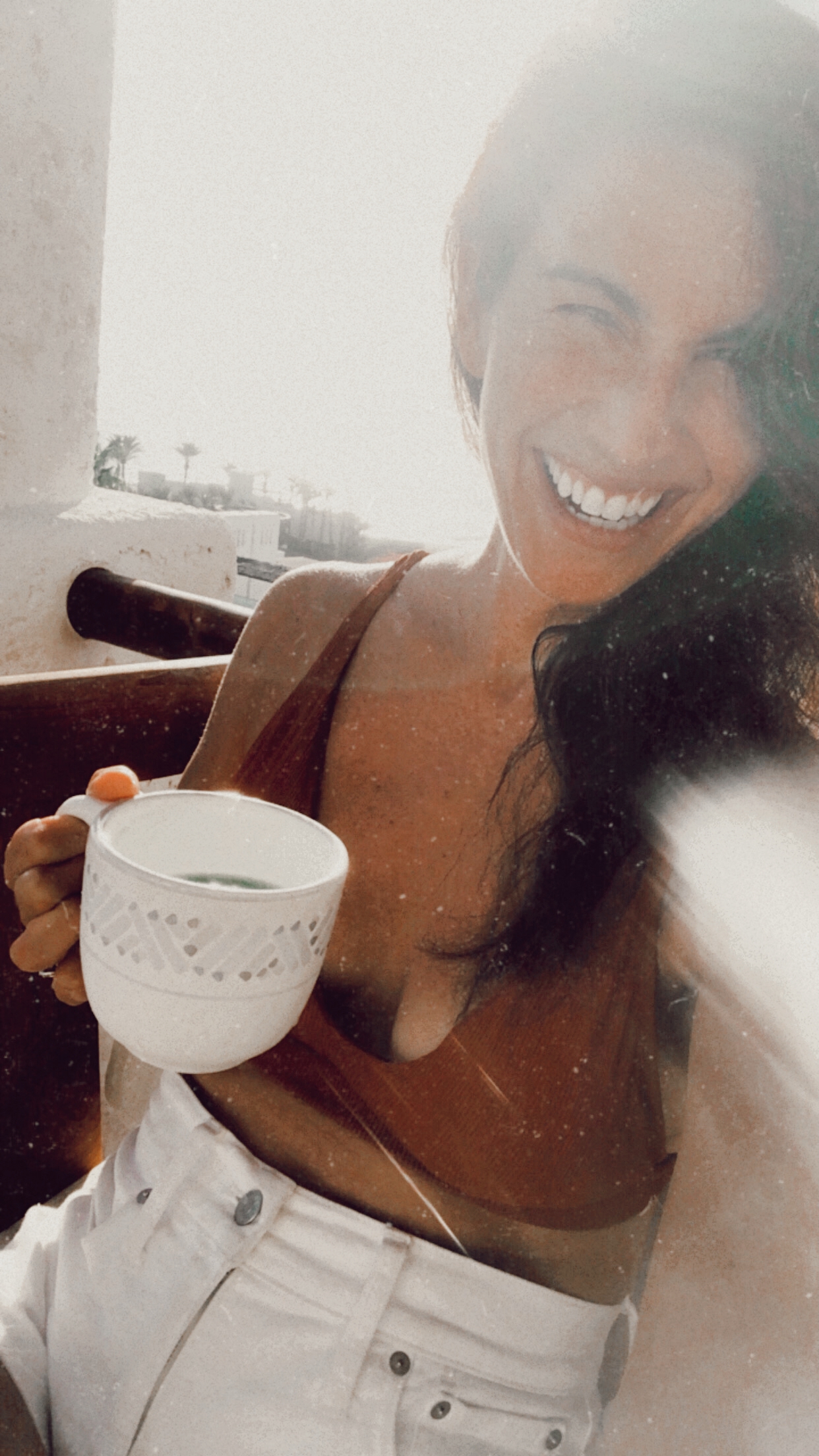
It wasn’t until after writing the 1st cookbook that I my cadence with that coffee became daily. Writing that first book, producing it all from start to finish–recipes, photographs, writing, production, printing and shipping in less than a year and self-publishing the entire thing on my own, really took a tax on my adrenals. There was a lot of stress going on. (SIDE NOTE: It’s worth nothing here that I didn’t necessarily FEEL stressed– I was loving the process (for the most part– there were def hard moments and times along the way). I was having so much fun, and while yes it was a lot going on, I didn’t really think about it as “stressful”. But the body & our adrenals and & our hormones can be affected by things internally, especially if it’s higher pressure or higher stress for a longer duration of time). More on that later.
But, that was the tipping point. I’d start the day with cold brew, and just GO hard for hours. I couldn’t wind down at night, with my head spinning. I loved it, truly. But I had pushed my body to the point of fatigue, and was not being kind to it as I continued to work hard and push through things. I was young and didn’t think much about it.
But it wasn’t until I wanted to get pregnant that I really started to really look a little more closely at my relationship to coffee. And work. And the fact that even though I didn’t feel outwardly stressed, and put a lot of intention in staying healthy and balanced as an entrepreneur……my body was giving me signals that internally it was getting maxed out.
So, with a new diagnosis back then (3 years ago) of PCOS and hormones that were a little off, I found out that coffee is one of the foods that can influence your hormones more negatively (dairy, chocolate and alcohol too, but again—I knew I didn’t want to extreme and cut everything out and feel like I was miserable). So I started with coffee– because while yes, an excess of caffeine isn’t GREAT for hormones overall, there’s something specific about the coffee bean itself, especially with PCOS hormones.
I started there, because I knew deep down it was the easiest one to go….and one my body had been telling me for a long time didn’t feel good.
So let me just stop right here and say something: coffee is NOT bad for you. Especially if you do the good versions of it. And do it mindfully. And you love it, and enjoy it. AND…. here’s the key: your body does well with it. I have so many friends, clients, my own mom, etc that love coffee and do great with it (aka, no sleep issues, no hormone imbalances, no anxiety/jitters, don’t need it to go to the bathroom daily, etc).
It all depends on your own body: so pay attention to your sleep, to how steady your energy and moods are during the day, to how often you crave sugar, and to your hormones overall. Are they steady and balanced…. or off in some way?
I DO believe there are ways to enjoy coffee in less crazy doses and with intention (see: the REAL pumpkin spice latte recipe here)…. but for me, it felt easier to try how I felt without it….because I knew about matcha. And that meant I didn’t have to go caffeine free, just coffee free for a bit.
Matcha made me feel so good when I had it (energized, productive, on top of things, alert & ready…..but without the downsides). Truly. I didn’t have to give up that feeling, that ritual and experience.
So, from that point forward, I’ve really never looked back. My adrenals were coming back, and my hormones were starting to do the same (along with a lot of other things I was playing with and adjusting). Because just like so much with our health, the things that seem “normal” or widely accepted in society don’t always mean they’re what you NEED. Coffee was one of those things, for me at least.
It can happen with food and exercise and self-care and balance, too. People think fast = good and more = better, but I tend to go the opposite in a lot of ways. Anti-quick fix, ya know? Because those rarely last.
So, today, I’d encourage you to look into your own pockets of routine and ritual throughout your day, too, and to ask yourself:
How does this make me feel, inside and out?
Be honest with your answer, and then? Adjust! Play. Make some tiny tweaks.
You do NOT need to go extreme and stop anything cold turkey. In fact, I’d suggest don’t. Do the opposite: very slow ramp downs of coffee and replacing with matcha as you go. But gently. And slowly. Over the course of a few weeks. And see how you feel.
Speaking of the negative side effects…. let’s get into WHY I gave up coffee in the first place, now more than two whole years ago! If you’ve been curious about a coffee-free life (but still very productive & energized life), keep on reading.
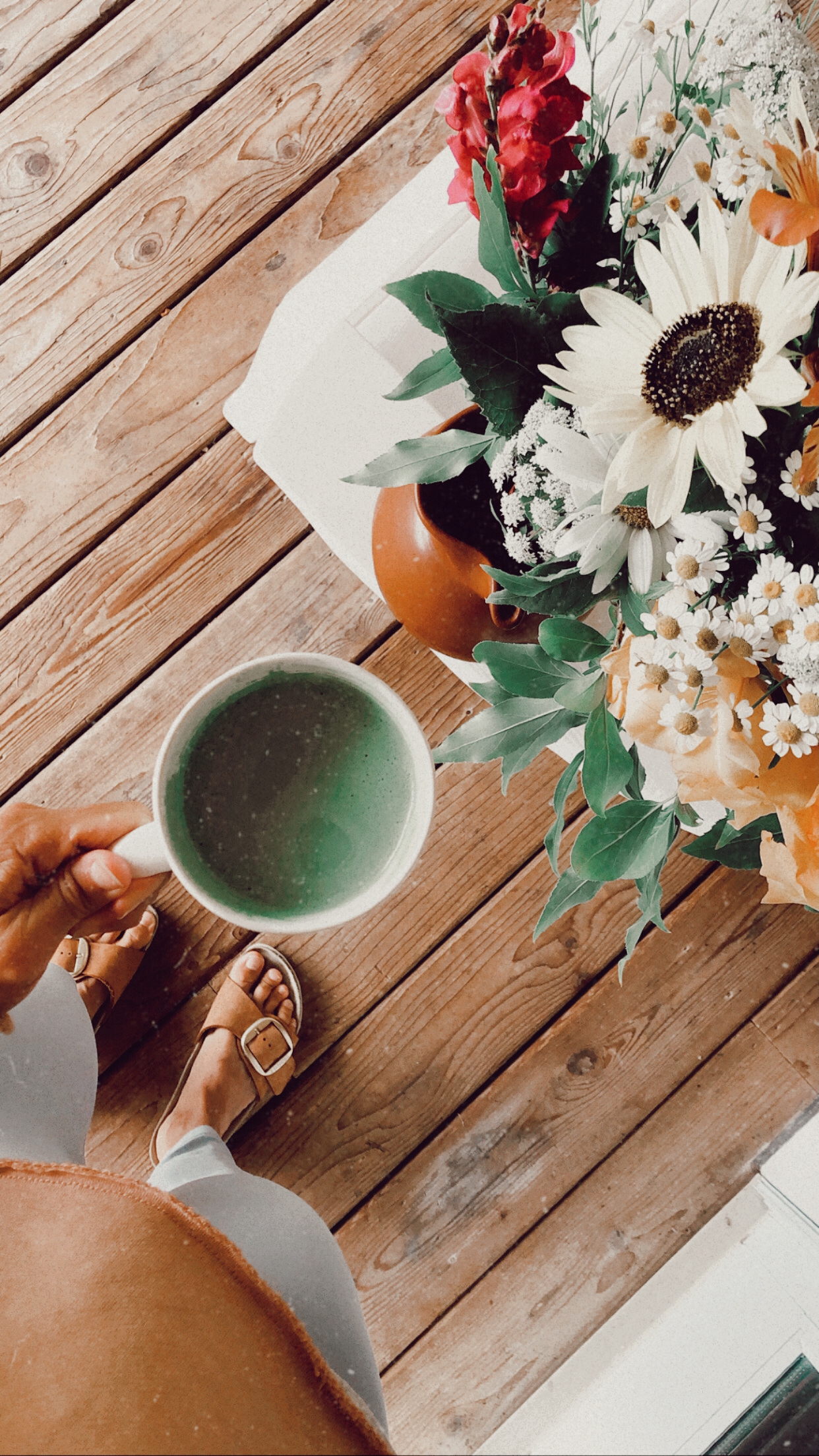
Why I stopped drinking coffee regularly:
Think about it like this: when we’re stressed, the body has a hard time regulating itself. Your immune system is weaker, your digestive system is stalled, your hormones have trouble keeping up.
And caffeine from coffee can actually cause your adrenal glands to overwork and become fatigued quicker when you’re consuming large quantities. Overworked adrenals = crazy heightened cortisol levels (cortisol is the STRESS hormone).
So…. it’s all linked and can end up creating this harmful cycle.
AND the more coffee you drink, the less you feel the “energizing” effects of it, just causing you to crave more + and need more, leading to adrenal fatigue, hormonal fatigue, and immune system burnout. It can be an endless cycle.
Don’t sleep well, so need more coffee. More coffee = more not sleeping well. See?
Instead, I started to to focus at the root: on sleep— whatever I could do to sleep better, longer and more deeply. One of the things in that list was easing up on the coffee because of the cycle it started. The second was thinking about stress differently. Not only defining it by when I mentally & emotionally felt stress, but thinking about if my body felt it by how I was treating it with food & drinks. Especially for longer duration things that we go through, whether it’s physical, mental or emotional in life.
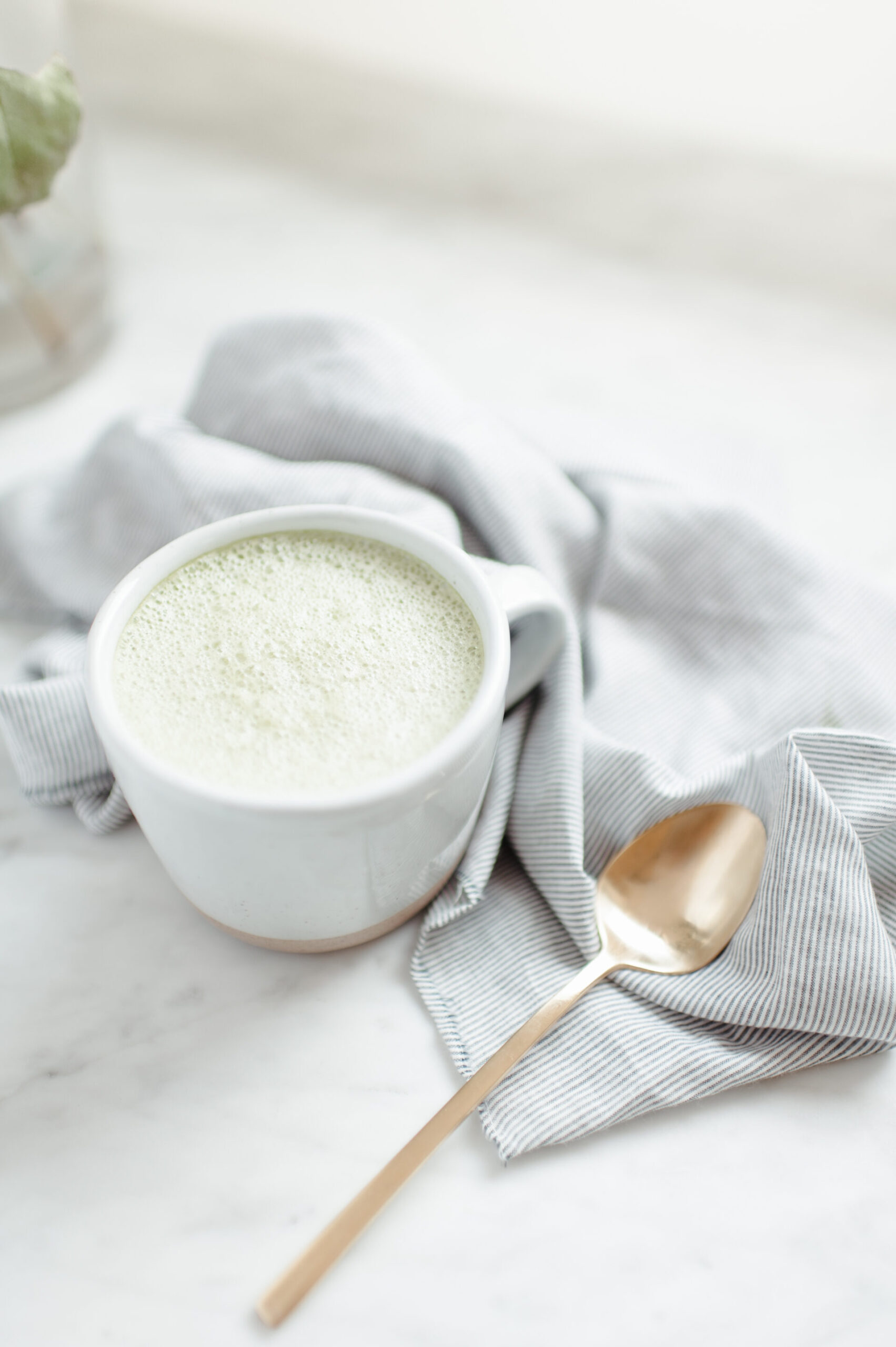
But, there is a better way! MATCHA has truly been one of the best things in life.
For those that don’t know what it is, matcha is green tea, where the tea leaves are ground instead of steeped, making it stronger in caffeine, antioxidants, chlorophyll, and cancer-protecting elements than even green tea itself.
Caffeine wise, it def has some, but about half the amount of coffee. But with very unique components to it that help with anti-aging, gut health, cellular health and detoxification, it’s a very different energy than coffee— it’s more calm, quiet and sustained vs spiked up and down quickly, thanks to the theanine in the green leaves itself.
Truly. I’ve never felt better. I’ve been drinking it for over 5 years now, with the last 2 years being exclusively. Since getting pregnant & giving birth, and being a new mama, matcha has helped me stay energized but BALANCED. And more important, still taking care of my hormones and being kind to them and my body vs pushing it to the max all the time.
I have a FULL guide to matcha right here from a few years back if you want to learn more about why this is *the* magic morning drink of my dreams, but here’s how I make it (below)!
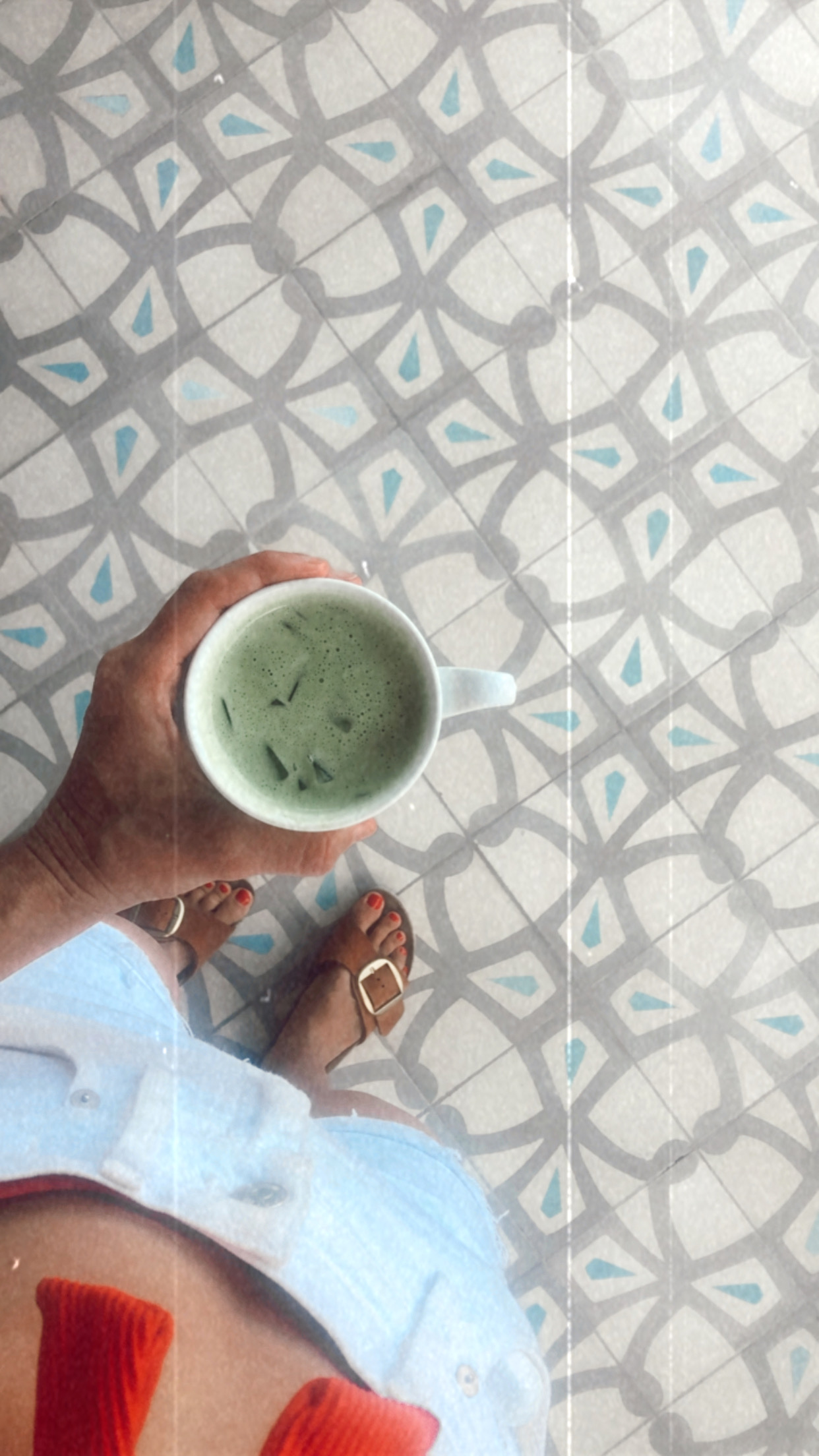
My Current Favorite Way to Make My Morning Matcha:
My favorite combo lately this past year has been this (to get 2 cups instead of one) that you see on IG:
1 cup almond milk or clean nut milk of your choice
1/4 cup coconut water (gives it a touch of sweetness without any added sugar, and electrolytes in the morning for hydration)
1/2 cup water
1/2 teaspoon matcha powder (I use this one– they have a small and large size and i get the large one)
In a saucepan, heat the water, coconut water and almond milk first. Pour liquid into a blender, turn on, and add matcha as it’s blending. Blend on high for 20 seconds before serving. To do iced matcha, skip the saucepan and throw everything in the blender first.
FAQ’s:
- Will I like the taste? So, yes it’s tea. It’s green. It has a very specific taste….but so does coffee ya know? I think matcha is best drinken with some milk, a hint of something sweet to balance the earthy tones and blended to get really good froth. If you’re someone who doesn’t eat a lot of vegetables, hasn’t made the switch to real foods yet or have tastebuds that are covered with sugar or other things in more processed food, it might take having it for a 2 weeks to help your tastebuds adjust. Or add a touch more maple syrup or less water and more almond milk to start, and then work your way down.
- Does it have caffeine? Yes. About half the amount of coffee. So make the switch slow and smart– there’s no rush!
- Does quality of the matcha matter? OMG yes. Please do not drink bad quality matcha, it can have so many chemicals and lead in it, if it’s not the good stuff. It also tastes TERRIBLE if it’s not the good stuff, so if you’ve tried it in the past and wanted to spit it out, try a better version! I love Matchaful for this reason. You want organic FOR SURE, and single origin if possible. You will taste the difference. And it’s worth paying a little bit more to avoid all the other stuff. I love the Hikari version and get the big bag 🙂
If you’re more of a visual person, here’s a LIVE video from last year when I showed my real process behind how I make it in the morning.
4 drinks to have instead of your morning coffee:
These are my tried-and-true warming bevvies that will make you feel good inside + out.
01. A Classic Matcha Latte (recipe from Simply Real Eating!)
½ cup water
½ cup nut milk or milk of your choice
½ teaspoon matcha powder
½ teaspoon maple syrup or honey
In a saucepan, heat the water and almond milk first. Add the matcha powder to a blender and pour the hot milk over the top, adding maple syrup or honey if using, and any other additions. Blend on high for 20 seconds before serving.
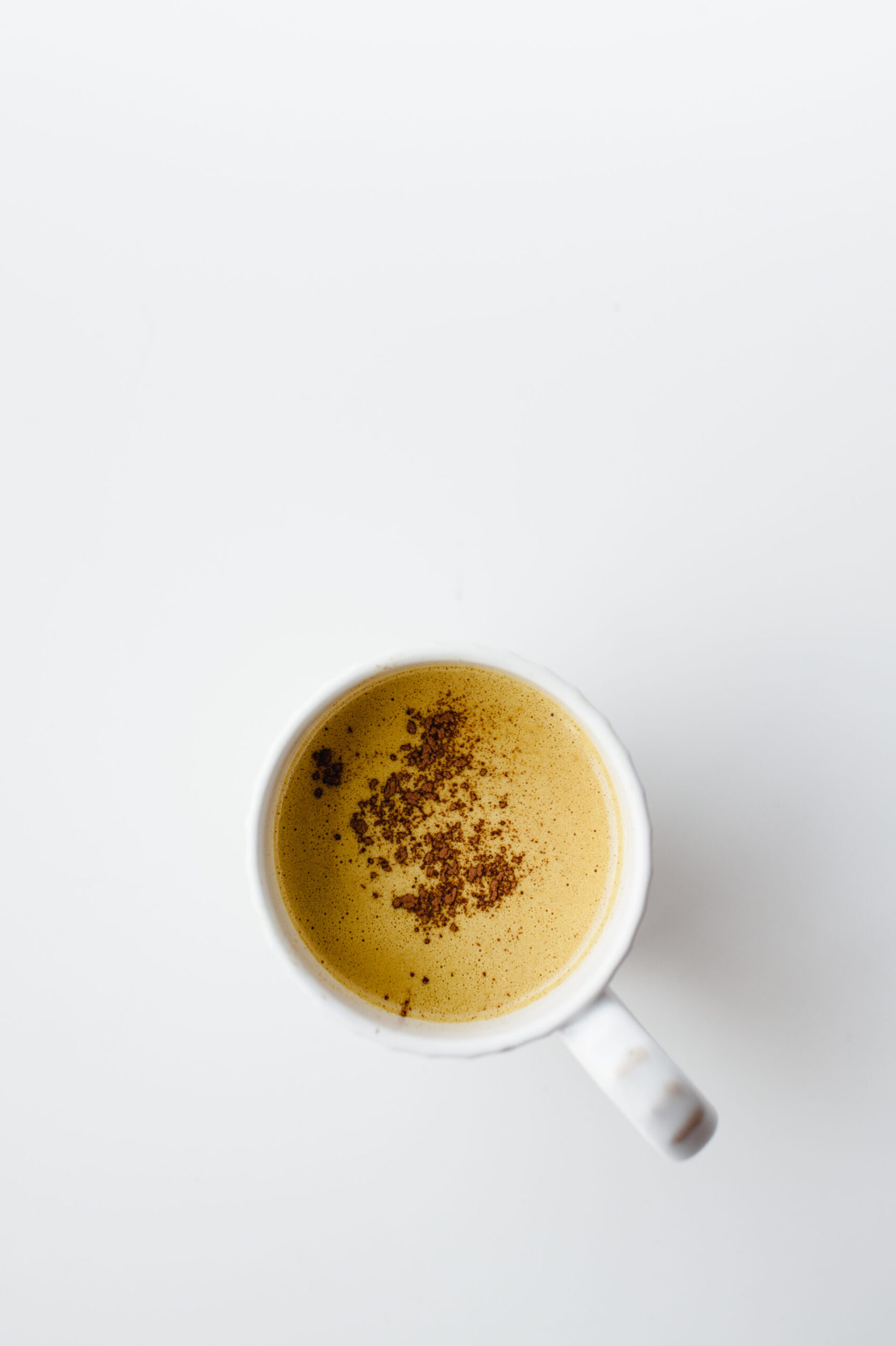
02. Golden Milk Latte (recipe from Simply Real Eating!)
This one has no caffeine at all, and is such a great immune booster, mid afternoon pickup and helps fight inflammation.
1 1/2 cups homemade nut milk or milk of your choice
1 teaspoon honey or maple syrup (optional)
1 teaspoon Healing Golden Milk Paste (recipe follows)
Heat the milk and sweetener in a small saucepan. Add the golden milk paste to a blender, pour the hot liquid over the top, and blend for at least 20 seconds for a beautiful froth. Serve hot.
Healing Golden Milk Paste:
¼ cup ground turmeric
2½ tablespoons ghee, grass-fed butter or unrefined coconut oil
2-3 teaspoons cinnamon
1-2 teaspoons ginger
1 teaspoon black pepper
½ cup water
Add all ingredients to a small saucepan over medium heat. Stir gently until the mixture forms a paste, adding water if it thickens too quickly. Pour your golden milk paste in a glass jar with a lid for up to 4 weeks.
03. Hot cacao from FourSigmatic:
So nourishing, rich & helps with sleep! Or, start upgrading your coffee first with their Lions Mane Coffee or try the Chaga Elixir (which is caffeine free and soooo good to help boost your immunity this time of year, also has a similar taste profile to coffee), and see how you feel. I loved it when traveling, in their easy packs. Get 10% off your order using the code ‘simplyrealhealth’ at checkout!
04. This chai mix powder for much healthier chai lattes.
All the flavor, without the sugar so you can add your own healthier versions of it. I do the same combo of almond milk, coconut water & 2 scoops of this chai to mix things up, but it’s also great with a bit of honey or maple, and milk of your choice. Blended, of course!
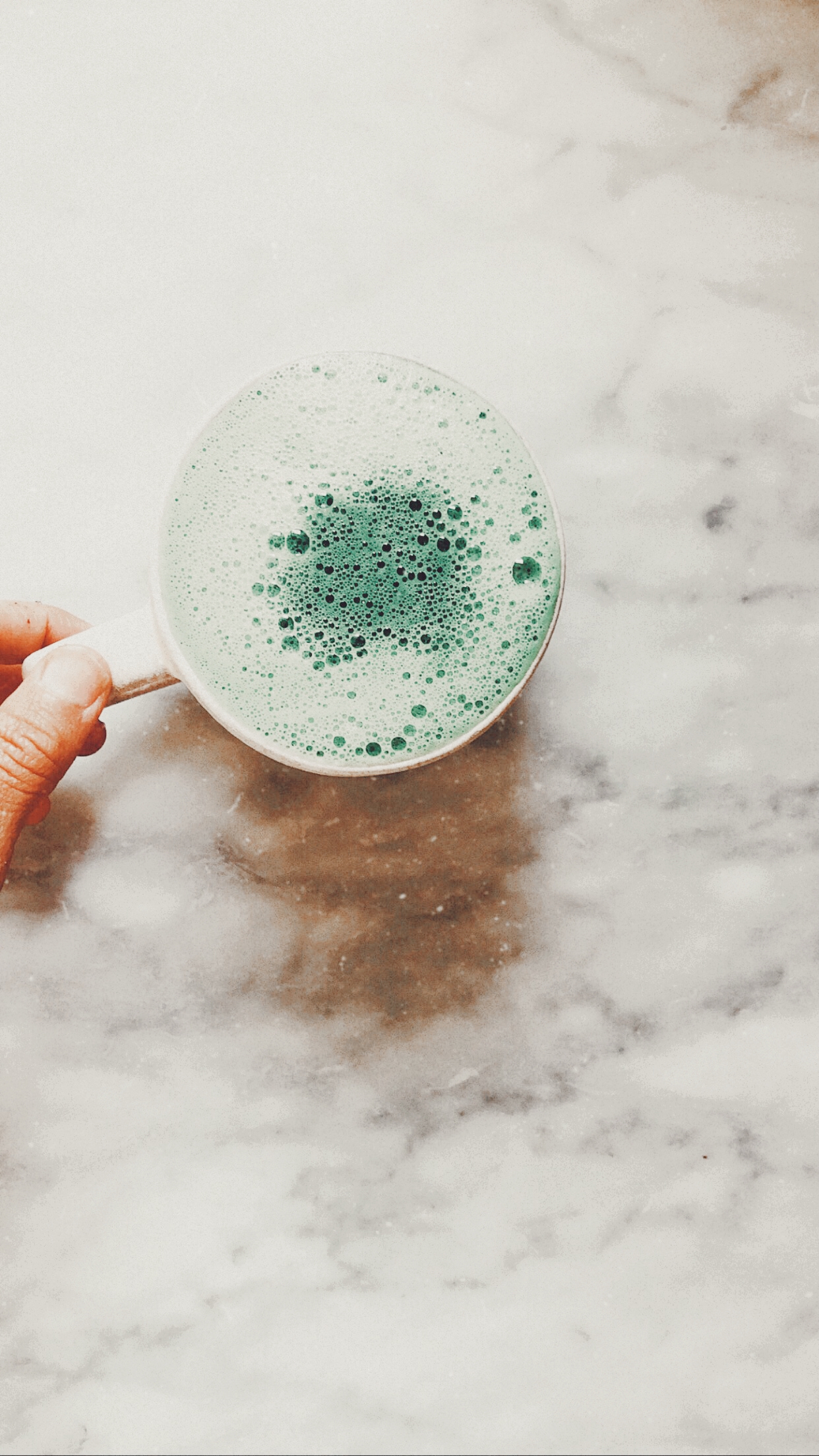
Need more warm bevvie inspo this winter?
Grab a copy of my latest cookbook, Simply Real Eating here. There’s a whole section on healthy bevvies inside (along with 125 more easy, healthy & naturally gluten-free recipes inside).




Thanks for all this info! Question : does decaf coffee has the same effect on your hormones, acidity for your stomach/etc, or can I keep convincing myself my cup of decaf is much better;)? ?
Decaf can have its own issues… if you do drink it I would look for swiss processed decaf and drink in moderation!